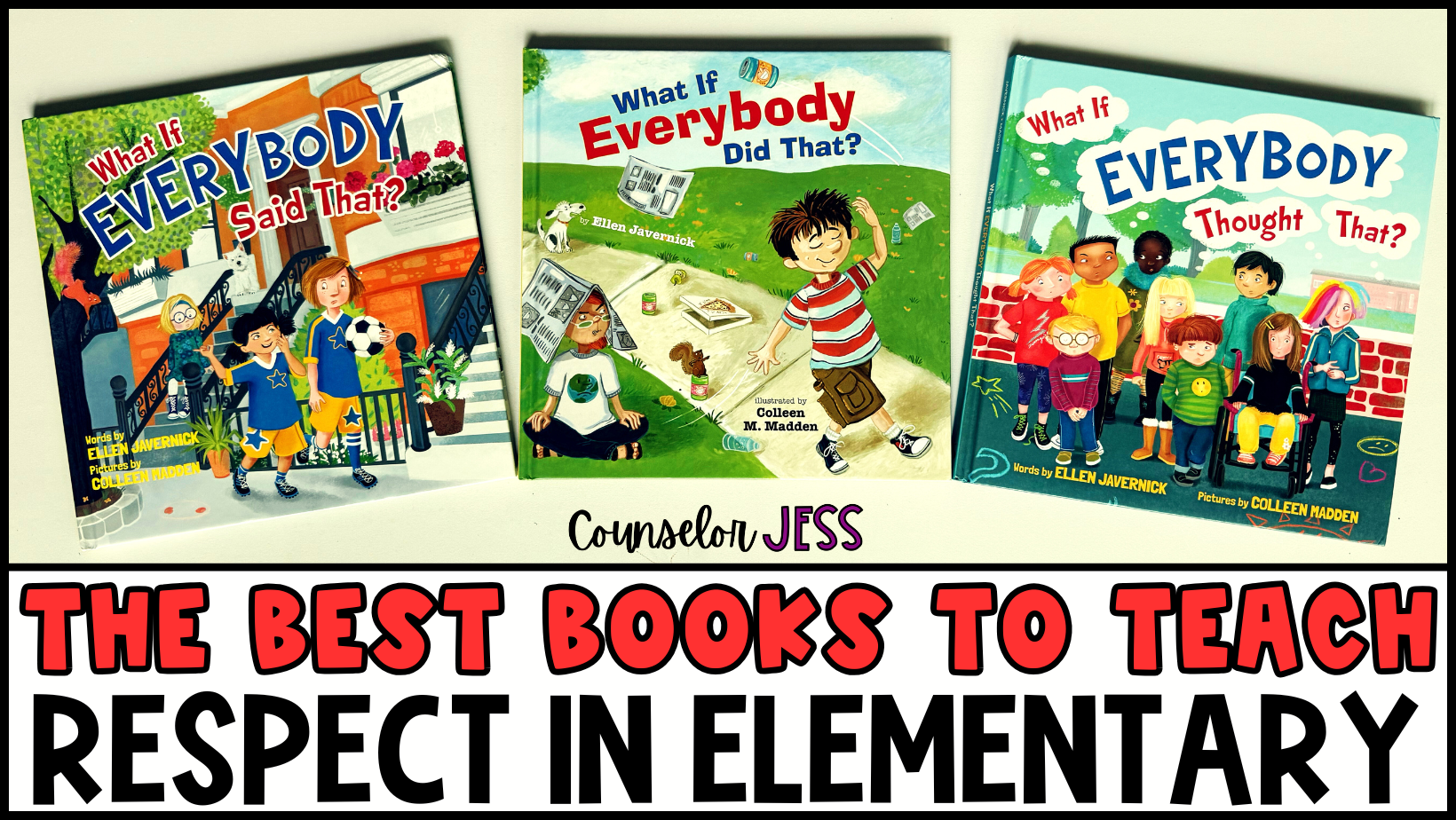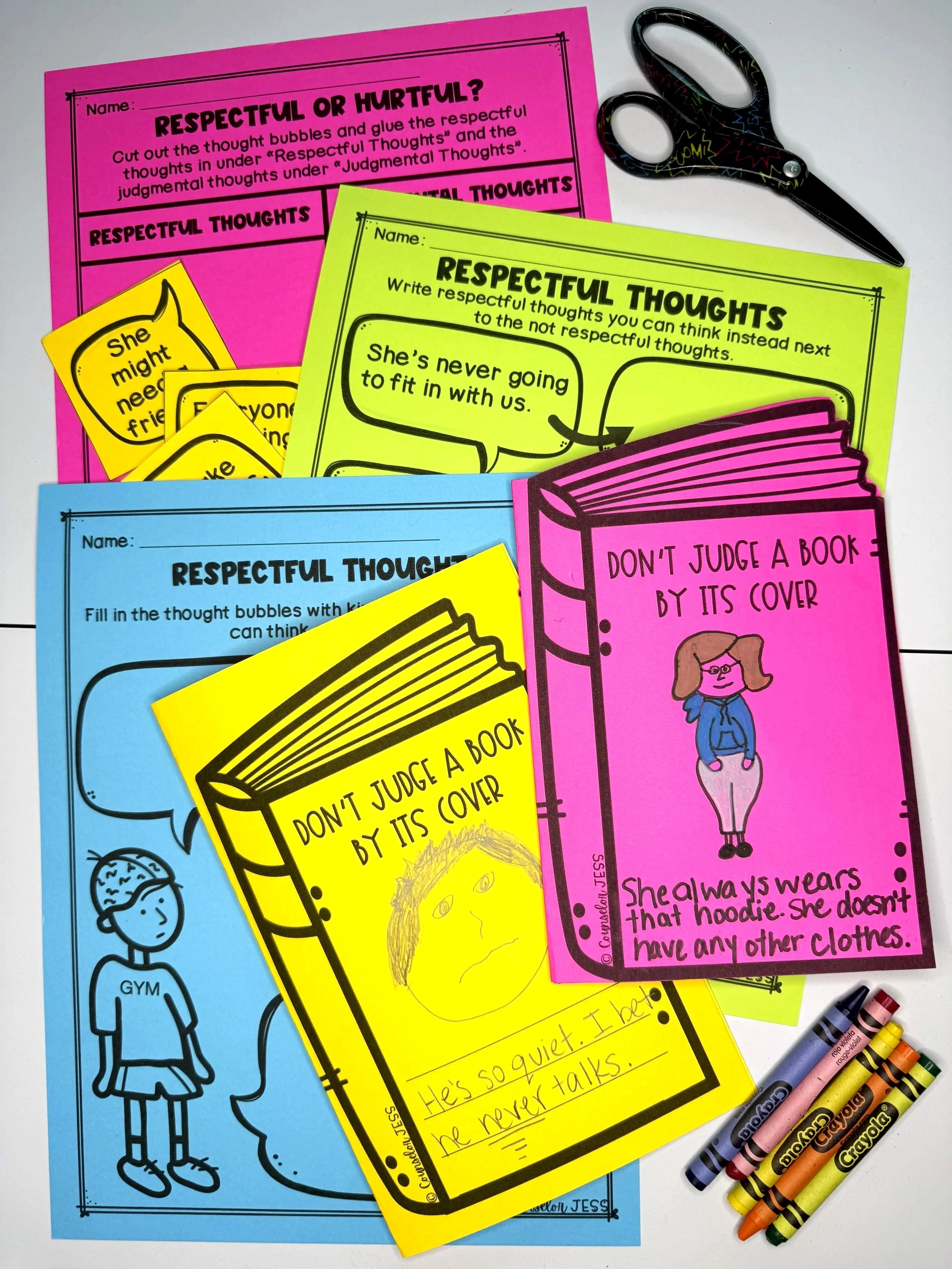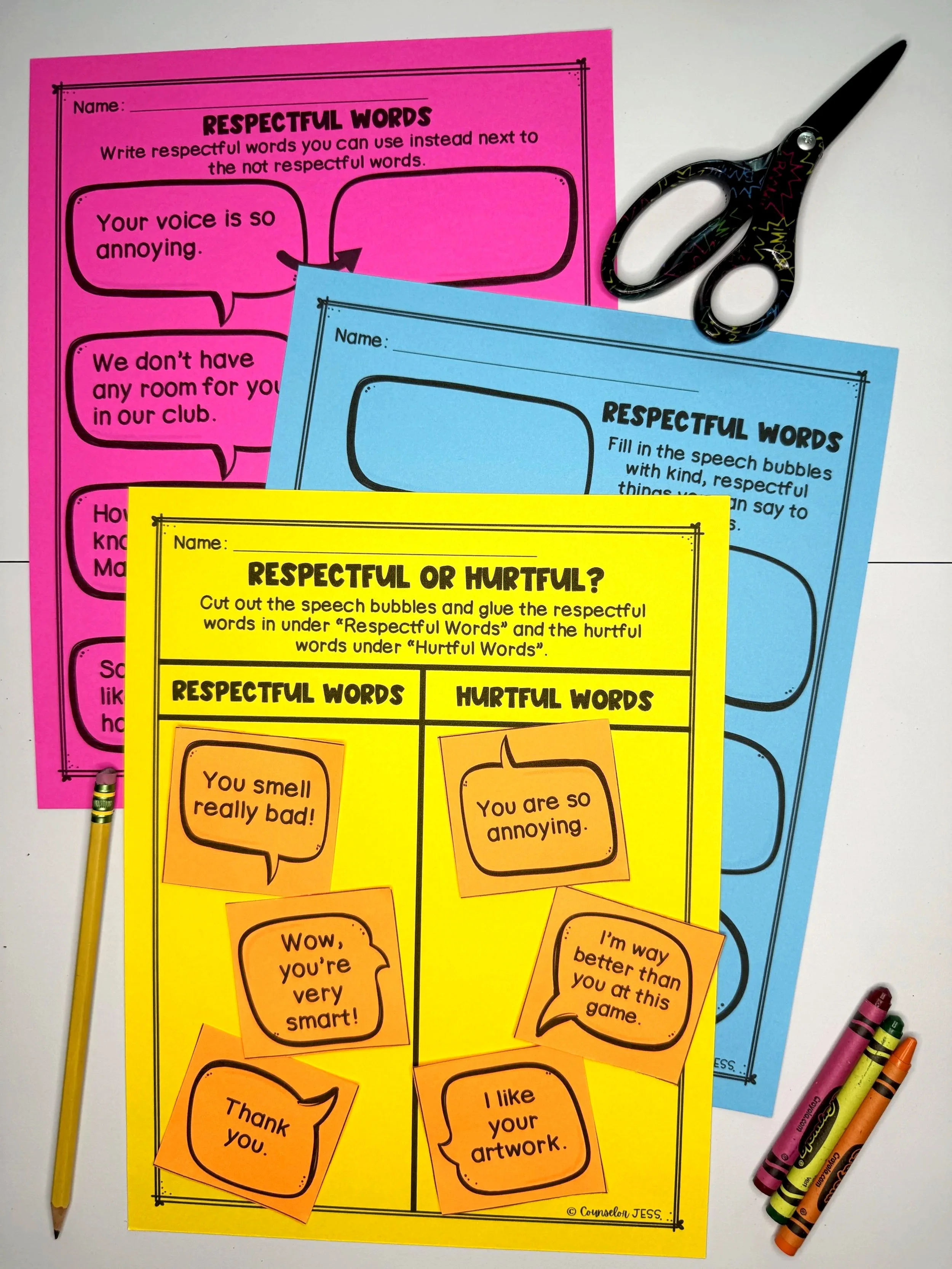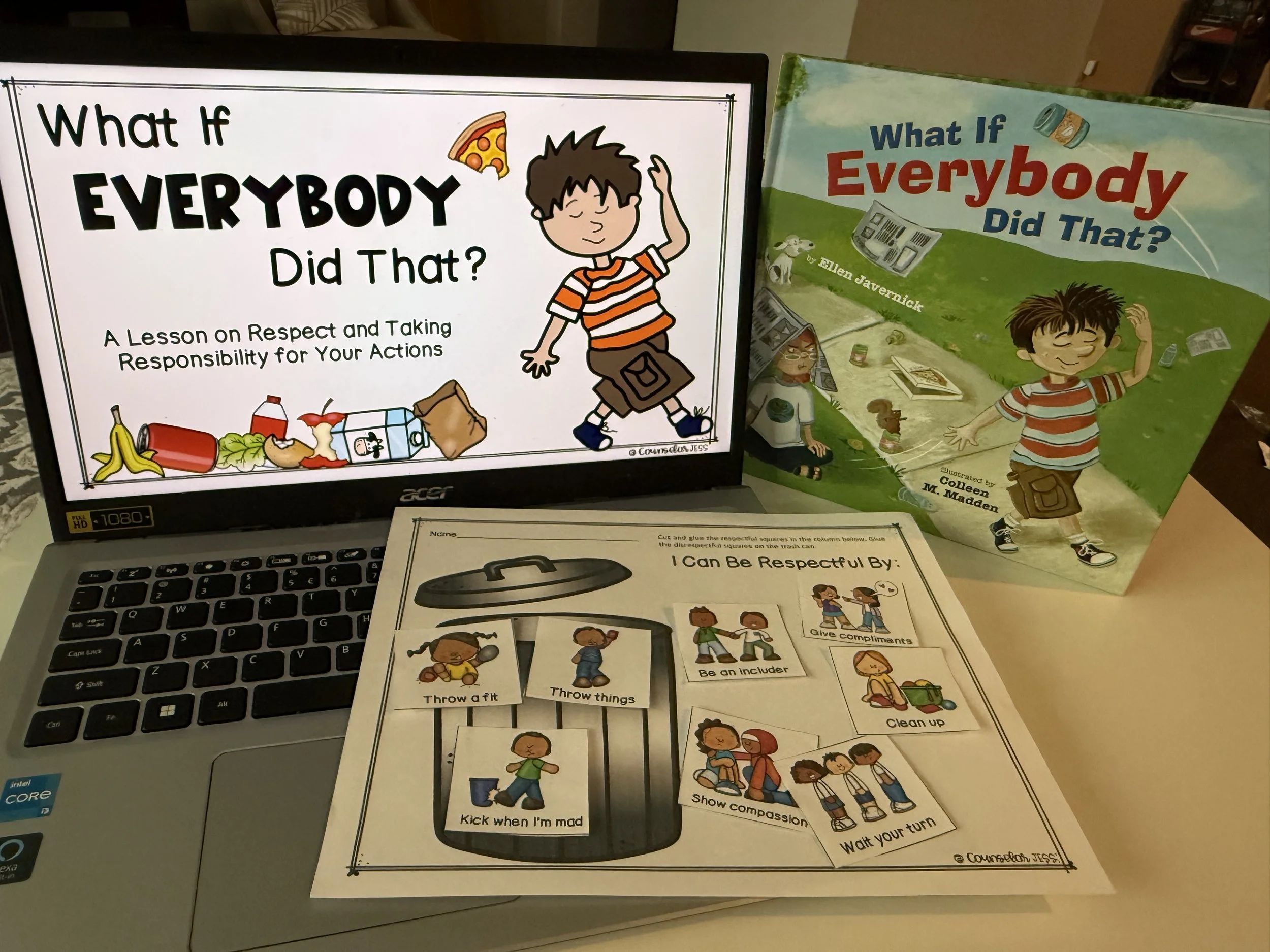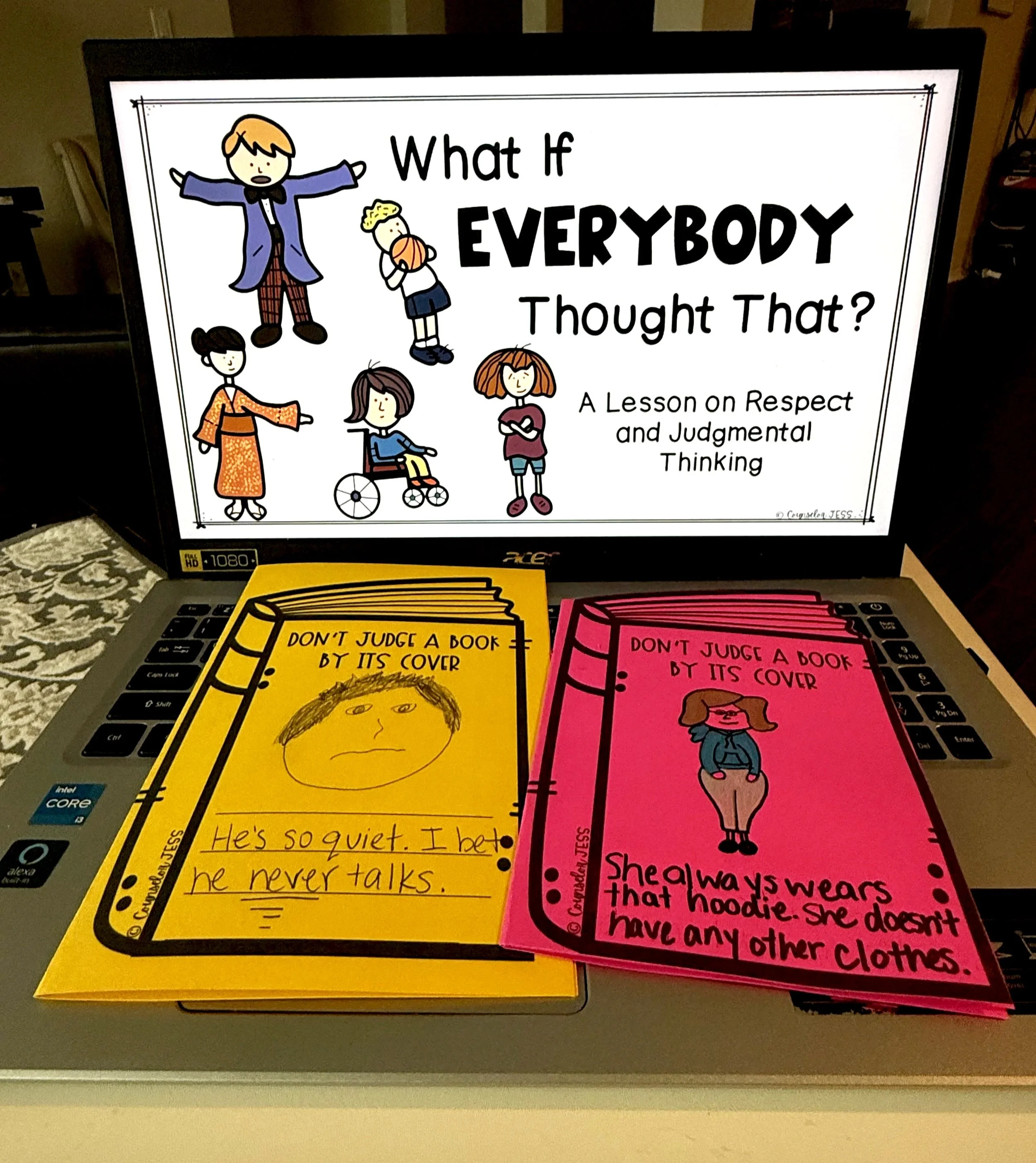The Best Books to Teach Respect in Elementary
Respect is one of the most important social-emotional skills we can teach in elementary school. It influences how students treat others, how they speak, how they behave, and how they think. But respect can be a big concept for young children to grasp. That is why I like to break it down into three parts: respectful actions, respectful words, and respectful thoughts.
One of the best book series to teach these skills is the What If Everybody series by Ellen Javernick. These books are easy to understand, highly relatable for students, and spark great classroom discussions. I created a set of no prep lessons to go along with these books that help reinforce the message and give students the chance to reflect on their own behavior. Each lesson is developmentally appropriate for PK through 3rd grade and includes both print and digital formats.
Let’s look at each book and how I use it to teach a different form of respect.
1. What If Everybody Did That?
Teaching Respectful Actions and Taking Responsibility
This book explores what would happen if everyone made selfish or disrespectful choices, even small ones. From throwing food on the ground to interrupting a story, the book illustrates how actions affect the larger community. It is a powerful way to help students think about personal responsibility.
In the lesson, I guide students through a book discussion and a mini lesson on respectful actions. Students sort behaviors into respectful or not respectful categories and reflect on how their actions impact others. One of the most impactful activities is the "What if everybody did the right thing?" drawing page, where students imagine how the world would look if we all made better choices.
2. What If Everybody Said That?
Teaching Respectful Words and Thinking Before You Speak
This book focuses on the words we choose and how they make others feel. It shows what happens when people speak without thinking, and why it is important to use kind, thoughtful language. It helps students pause and consider the impact of what they say.
The companion lesson includes reflection questions, a respectful vs. not respectful words sorting activity, and a "What to Say Instead" worksheet. These activities help students build awareness of their words and give them tools to make more respectful language choices in everyday situations.
3. What If Everybody Thought That?
Teaching Respectful Thoughts and Avoiding Judgment
This story invites students to consider how their thoughts can be judgmental or unkind, even if they are not spoken out loud. It opens the door to conversations about empathy and how to challenge unfair assumptions.
In the lesson, we focus on how to shift judgmental thinking into more understanding thoughts. The craft activity, “Don’t Judge a Book by Its Cover,” encourages students to reflect on how people might feel when judged and how to approach others with kindness instead. There is also a sorting activity and multiple reflection pages that support deeper understanding.
Using All Three Lessons Together
I bundled these three resources into the What If Everybody Series Respect Bundle so that educators could teach all three forms of respect together. These lessons can be used over the course of a week, spread out through the month, or revisited throughout the year as needed. The lessons work well for whole group instruction, small group counseling, or individual support.
Each lesson includes:
A book discussion guide
A mini lesson targeting a specific form of respect
Reflection questions
A sorting activity
Engaging worksheets and optional crafts
Both PowerPoint and Google Slides formats
This bundle is a great fit for SEL instruction, character education, or classroom guidance. Everything is low prep, flexible, and designed to make a lasting impact.
Tips for Teaching Respect in the Classroom
Model respectful behavior consistently. Students learn just as much from what we do as what we say.
Keep it interactive. Use hands-on activities, role plays, and real-life examples.
Revisit the lessons. Respect is not a one-time topic. These skills grow with reinforcement and reflection.
Make space for discussion. Give students the chance to share their thoughts and listen to each other.
Final Thoughts
When students understand that respect shows up in their actions, words, and thoughts, they begin to take ownership of how they treat others and themselves. The What If Everybody books are an excellent starting point, and with the right follow up activities, the lessons go even deeper.
If you are looking for a meaningful, easy to use way to teach respect in your classroom or counseling setting, the What If Everybody Series Respect Bundle is a resource you will come back to again and again. These lessons make big ideas feel accessible and help students build the kind of character that creates a positive classroom culture.
Ready to get started? You can find the full bundle here.
